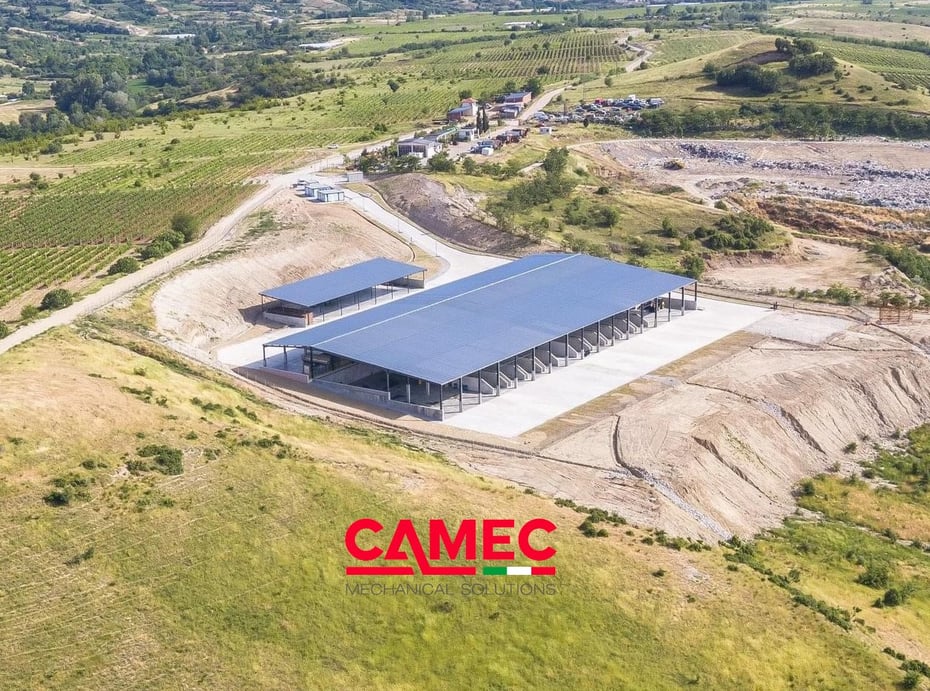Properly handling waste is a fundamental practice for our society, as it allows protecting the health of people and the environment and limiting the amount of waste sent to landfills, incinerated, or indiscriminately dispersed in nature.
Waste sorting facilities, which allow for accurate differentiation of raw materials that can be recovered, are a crucial ally in this regard, but their benefits do not stop at environmental protection and human health: a waste sorting facility is also an important economic resource for the area in which it is located and can become the starting point for triggering extremely positive processes in terms of health, environmental protection, and the growth of the economy and well-being of individual citizens. Here's why:
Recycling and Circular Economy
Recycling is a fundamental part of the so-called "circular economy", a model of production and consumption based on saving raw materials and recovering waste, which instead of being simply eliminated are used for new applications. This circular model contrasts with the classical model (which is linear and based on the production-consumption-waste elimination chain) and is one of the strategies that the European Union has chosen to support to create a more sustainable economic system. The basic principle is to create a genuine virtuous circle where products are built to last a long time, reused as much as possible, and finally – when they turn into waste – reconditioned or recycled to recover the raw materials they contain.
The EU has chosen to support this type of model for environmental reasons (it is proven that if we continue to consume at the current rate, by 2050, we will need resources equivalent to those produced by three Earth planets, which we obviously do not have) but also for strictly economic reasons: the circular economy is a competitive system that allows saving resources, employing many workers in the sector, and creating a genuine supply chain that is positive both for those directly operating in disposal plants and for society as a whole.
Waste Sorting Facilities and Job Creation
All activities involved in waste sorting and subsequent recycling require specialized workers in specific tasks, which in many cases are performed manually. It is true that a recycling plant can also rely on industrial machines that perform part of the activities, but in this sector, the human component is still essential: this means that opening a waste sorting facility in an area that lacks one immediately creates jobs. Dozens of people can be directly employed in a single waste sorting facility (the number obviously varies depending on the size of the facility and the amount of waste to be processed): it is evident that such numbers, if multiplied across all municipalities in a specific area, allow for achieving very significant results in terms of employment growth, and therefore the economy as a whole.
The Waste Supply Chain: Not Just Sorting Facilities
A waste sorting facility employs several dozen people directly, but its positive economic impact on an area does not stop there. A sorting facility is just one part of a much larger supply chain, consisting of various economic, industrial, and service activities that in turn employ specialized personnel. Within this supply chain, we can find:
- Waste collection services, necessary to transport waste from individual production/contribution sites to the disposal plant. It is important to note that such services become more elaborate and require more employees in areas with high rates of separate collection.
- The waste valorization industry, which includes a long series of different activities: from sorting plants to recycling plants, to those specialized in the treatment of special waste, and so on.
- The industry that reuses recycled raw materials, closing the loop and materially transforming waste into new resources.
In Italy, currently, there are about 100,000 people employed in this sector, and the number of employees is growing year after year. The impact of creating such a supply chain is even more significant in countries and areas where waste recovery and valorization activities are still not widespread. In that case, starting a virtuous process like this can lead to a real revolution – even economically – capable of concretely improving the lives of people and communities.


